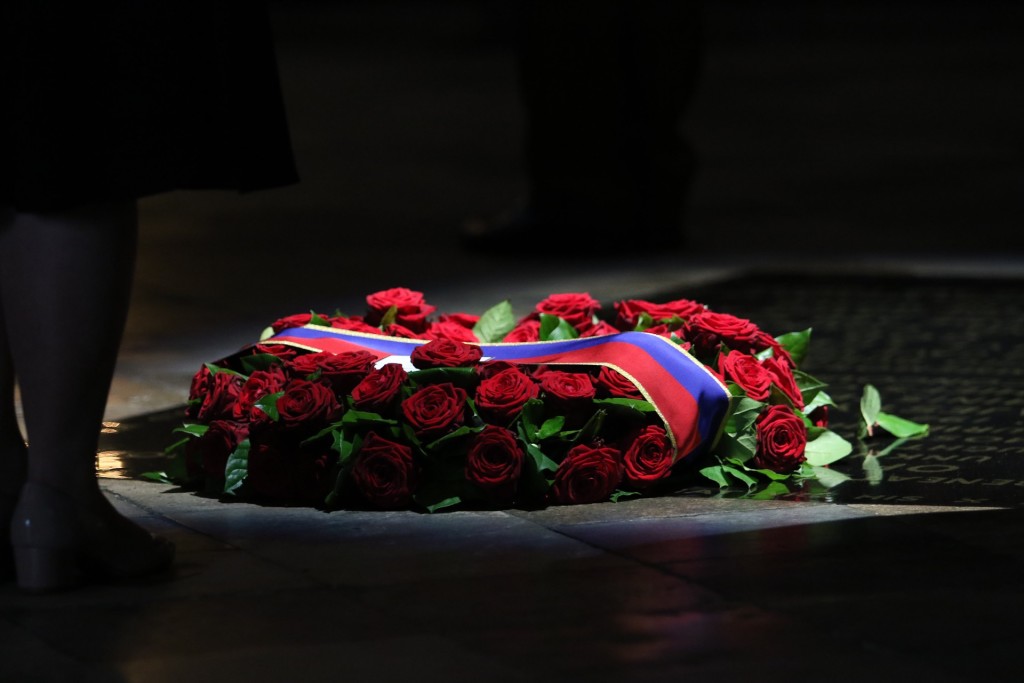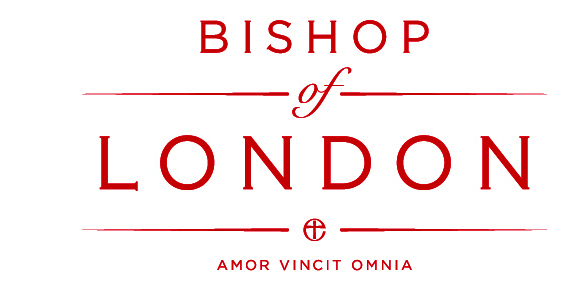
City Hall Remembrance Service
“Isn’t it time we moved on?” – Address by the Bishop of London, Richard Chartres
Beloved – what we do together in this place of assembly for all Londoners is deeply significant. We are here to remember on Armistice Day those who fought in the Great War to end all wars and to remember the countless conflicts which have followed. We cannot change the past but we are responsible for how we remember the past.
You do not create a kinder world by enforcing amnesia and banning the wearing of poppies. What we choose to remember shapes the future. In truth, we remember the future.
By the end of the Battle of the Somme, on November 18th a hundred years ago, 419,654 British, Dominion and Empire soldiers had become casualties of whom 127,751 had been killed. The Germans may have lost over 600,000, killed and wounded as they held their positions. There was no Allied breakthrough on the Somme and 1917 would bring renewed attritional struggle at Arras and Passchendaele.
But if the battle had not been fought, the French at Verdun would have been overwhelmed and the war could well have drawn to a different conclusion.
The memorial crosses in every village and town and the cemeteries in France bear witness to the vast scale of the heart break and disruption caused by the Great War.
The 20th century had begun in a spirit of optimism. The ruling families of Europe were related to one another. There had been a growth of international trade, of institutions to regulate transnational problems and vast improvements in communications. It was a hopeful picture obliterated by massive failures of statesmanship.
The early 20th century was also a time of global transition. Power was shifting to the newly united German Empire while the Russian economy was in a phase of rapid expansion. There was fear on all sides and an escalation of rhetoric, demonising competitor nations and peoples.
The 21st century is very different from the 20th century but it is also a time of profound transition. The tectonic plates are shifting and the unchallengeable Western hegemony and secular confidence of the last 250 years is being replaced by a more multi-polar world in which the countries of the East will once more play something of the role they have fulfilled for most of human history. The task of our political leaders is to ensure that international institutions are reshaped to reflect the new realities and that the transition is effected without war.
There are lessons here for London, which stands at a global crossroads with communities drawn from every part of the world. Every one of us has a responsibility whatever our sphere to ensure that public discourse is not coarsened and that rational debate is not overwhelmed by the crude articulation of anger and fear of the stranger.
The poet Yeats made an ominous prophecy when he said – “Things fall apart, the centre cannot hold …. The best lack all conviction and the worst are full of passionate intensity.”
We have seen where surrender to the voices of intolerance and fear can lead. One of the things we remember this day is the horror of war and the suffering which turned 20th century Europe into a vast graveyard. But on this day we also recognise that civilisations die in the night when no one can be found to give their lives for their friends and comrades. We honour the service and sacrifice of our armed forces. And we honour the work of the Royal British Legion in supporting the veterans of conflict.
We remember the contribution of many nations to the allied war effort and not least the very large numbers of soldiers from every part of the Indian sub-continent.
We recognise and embody today a number of spiritual traditions, east and west, which are united in rejecting the hubris involved in elevating our fragment of humanity above the rest. So this is also a day for remembering the God and Creator of all. Julian Barnes said, “I do not believe in God but I miss him.” It is a good place to start.
The great Muslim theologian Al-Ghazali wrote, “Praise be to God whose compassion is all-embracing and whose mercy is universal; who rewards his servants for their remembrance of Him; verily God has said – Remember me and I will remember you”.
Jesus Christ, whom Christians believe is the human face of God, Jesus is never a hero for our sectarian causes. His way of self-giving love is the way into a wider us, inclusive of all creatures under the heaven, a deeper sense of the deep universal drama beneath and beyond the white noise of everyday and so the way into a better life together
Let us remember the sacrifices of the past and so re-member, unify and not dis-member our own city.
When I first had the privilege of leading prayers at the Cenotaph on Remembrance Sunday more than 20 years ago the first question any journalist would ask was “the war is a long time ago, isn’t it time we moved on?”. No one asks that question today.
Our prayer must be that with the wisdom sown in blood and tears we may be agents of the reconciliation which is God’s will, reconciliation wherever we live or from wherever we come, rejecting those who would stir up hatred and division and instead working for reconciliation that will ensure that our children will never have to endure what the men of the Somme so bravely endured.
